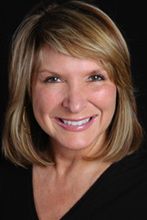Stanford students have exciting opportunities to build their entrepreneurial mindset in winter quarter 2012. As the entrepreneurship center in Stanford’s School of Engineering, the Stanford Technology Ventures Program (STVP) is proud to offer courses, programs and resources that help unlock the Stanford entrepreneurial spirit.
Our offerings cater to students of all majors with different levels of exposure to entrepreneurship, from those interested in catching the entrepreneurship bug by hearing from luminaries at the DFJ Entrepreneurial Thought Leaders seminar (MS&E 472), to students looking for an intense startup experience by applying to be part of the Mayfield Fellow Program.
Below you will find course descriptions for the winter quarter, with links to course websites and instructor bios. For course information covering the entire academic year, you can also view the STVP Courses webpage.
ENGR 145 Technology Entrepreneurship — 4 units (2 sections)
Instructor: Chuck Eesley
Limited enrollment.
[quote_right]”With all of the problems that need solving, the world needs more graduates trained to develop an entrepreneurial mindset of turning problems into real opportunities.” —Assistant Prof. Chuck Eesley[/quote_right]How do you create a successful startup? How does an entrepreneur form a team and gather the resources necessary to create a great enterprise? This class mixes mentor-guided team projects, in-depth case studies, research on the entrepreneurial process, and the opportunity to network and ask questions of Silicon Valley’s top entrepreneurs and venture capitalists.
This course is for undergraduates of all majors who seek to understand the formation and growth of high-impact start-ups in areas such as information, green/clean, medical, and consumer technologies. Watch a quick video profile on the Technology Entrepreneurship course from Forbes.com.
MS&E 175 Innovation, Creativity and Change – 3 – 4 units
Instructor: Riitta Katila
Limited enrollment. View the MS&E 175 course website.
How do companies and organizations of all sizes maintain creativity and innovation? In MS&E 175, students explore avenues for problem solving in organizations, and develop creativity and innovation skills.
Learn the thinking tools used by creative organizations, teams and individuals to create communities with a lasting culture of innovation.
MS&E 178 The Spirit of Entrepreneurship — 3 units
Instructor: Heidi Roizen
This course teaches students to think like a successful entrepreneur by learning how to analyze key parts of various startup business models. The course uses the speakers at the Entrepreneurial Thought Leader seminar (MS&E 472) as the source of the companies to be explored.
Students meet before and after each Entrepreneurial Thought Leaders seminar to prepare and debrief, respectively.
ENGR 245 Technology Entrepreneurship & Lean Startups (The Lean LaunchPad) — 4 units
Instructors: Steve Blank, Ann Miura-Ko and Jon Feiber
Limited enrollment. View the ENGR 245 course website.
ENGR 245 offers students the chance to apply emerging entrepreneurship principles, including the “lean startup” and “customer development” frameworks, to prototype, test, and iterate a product. Students will also discover if a profitable business model exists for the product.
Students will work and study in teams or, in rare cases, alone. A proposal is required during first week of the quarter, and can be for software, a physical good, or a service of any kind. Projects are treated as real startups, so students are encouraged to prepare for intense work.
Watch Steve Blank and Ann Miura-Ko discuss lean startups, financing and the product development process.
MS&E 271 Global Entrepreneurial Marketing — 4 units
Instructors: Thomas Kosnik, Donna Novitsky, and Lynda Kate Smith
Limited enrollment. View the MS&E 271 course website.
Students will learn skills needed to market new technology-based products to customers around the world. The course includes case method discussions on examples from startups and global high-technology firms.
The coursework covers targeting markets and customers, product marketing and management, partners and distribution, sales and negotiation, and outbound marketing.
MS&E 280 Organizational Behavior: Evidence in Action — 3-4 units
Instructor: Robert Sutton
Limited enrollment; priority to MS&E students.
This course examines organization theory and explores concepts and functions of management. Additional topics to be covered include behavior of the individual, work group, and organization. Work within the course will emphasize case studies and related discussion.
Watch Professor Sutton discuss why organizational structures can often inhibit a manager’s ability to hear the truth.
httpv://www.youtube.com/watch?v=4INfX3k073M
MS&E 472 DFJ – Entrepreneurial Thought Leaders Seminar — 1 unit
Instructors: Tom Byers, Thomas Kosnik, and Tina Seelig
Required web discussion. Course may be repeated for credit.
The DFJ Entrepreneurial Thought Leaders Seminar is a weekly speaker series that presents innovators from across the business, finance, technology, and philanthropy sectors, to share their insights with aspiring entrepreneurs. Through MS&E 472, students have the opportunity to learn real world knowledge from prominent leaders and entrepreneurs.
DFJ-ETL Speaker Lineup for Winter 2012
Jan 18: Deborah Hopkins – Chief Innovation Office, Citi
Jan 25: Alexander Osterwalder – Entrepreneur & Author
Feb 1: Ted Zoller – Senior Fellow, Kauffman Foundation
Feb 8: Gale Anne Hurd – Film Producer & Screenwriter
Feb 15: Sukhinder Singh Cassidy – Founder & Chairman, Joyus
Feb 22: Reid Hoffman – Co-Founder, LinkedIn; Partner at Greylock
Feb 29: Kristina Johnson – Former US Secretary of Energy
Mar 7: Sandra Kurtzig, AskGroup & Andy Kurtzig, JustAnswer
Enjoy these popular clips from Entrepreneurial Thought Leader seminars in 2011.
MAYFIELD FELLOWS PROGRAM
Application Period: December 9, 2011 — February 1, 2011
[quote_right]”Entrepreneurship courses at Stanford have a great reputation for having an appropriate mix of theory and hands-on learning. The Mayfield Fellows Program is legendary on campus, and after several friends recommended MFP, it was too hard to resist applying.”
– John Melas-Kyriazi ’11, MFP[/quote_right]The Mayfield Fellows Program (MFP) is our nine-month work/study program designed to develop a theoretical and practical understanding of the techniques for growing technology companies. Starting in the spring quarter, the program combines an intense sequence of courses on the management of technology ventures, a paid summer internship at a startup company, and ongoing mentoring and networking activities.
Attend one of our Mayfield Fellows Program information sessions in January.



